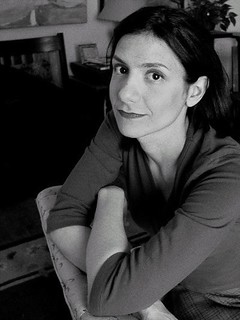“Midway upon the journey of our life, I found myself within a forest dark, for the straightforward pathway had been lost.”— Dante's Inferno
“I guess the grass is always greener. It’s just . . . It’s what you said, right? It’s that forty-something thing where you start thinking about the life not lived.”— Gwen, Rapture, Blister, Burn
 A popular assumption about feminists — not just among certain right-wing personalities — is that they are ugly, sexless, humorless harpies that no man wants (unless women advocate for access to birth control, then they are common sluts). In Rapture, Blister, Burn, Gina Gionfriddo grapples with the realities of women’s lives and pulls off a popular comedy about feminism. Fortune favors the bold and, as noted by Variety, “Gionfriddo’s some kind of genius.”
A popular assumption about feminists — not just among certain right-wing personalities — is that they are ugly, sexless, humorless harpies that no man wants (unless women advocate for access to birth control, then they are common sluts). In Rapture, Blister, Burn, Gina Gionfriddo grapples with the realities of women’s lives and pulls off a popular comedy about feminism. Fortune favors the bold and, as noted by Variety, “Gionfriddo’s some kind of genius.”Originally, Gionfriddo tried to write a play about the possible psychological and sociological effects of internet pornography. As she told Playwrights Horizons’ artistic director Tim Sanford in an interview, “I was a child of the ’70s; when we wanted information about sex, it was extremely hard to get. We would try to steal a Playboy Magazine or find a dirty book in the library. Now it’s just like Sodom and Gomorrah at the click of a mouse. And I am fixated by the idea that there has to be some hideous psychological trickle-down from that.” She sketched out a character, an academic who would lecture on the topic, but lectures, she realized, are lousy theatre. Shifting gears, she developed plot ideas that would allow the character to confront her area of academic expertise in her life. Gionfriddo says, “From there, the play evolved into a story less about porn than the state of male/ female relationships at this particular time in America.”
The protagonist, Catherine, disenchanted with her life as a hotshot public intellectual, latches onto her mother’s recent heart attack as an excuse to return home. Home includes her friends from graduate school, specifically her ex-lover Don who jilted her for Gwen. Gwen, began in the same place as Cathy, but chose another path, dropping out of school to be a stay-at-home-mother. Both women wonder what life would be like on the path not taken.
Life meets theory when Catherine convinces Don to let her teach a summer seminar on her topic: “The Fall of American Civilization.” In an awkward twist, only two students enroll in the class has just two students: Gwen, and her erstwhile twenty-something babysitter, Avery. Cathy’s mother Alice is along for the ride, joining the women at the end of their sessions with martinis and yet another perspective.
A reconsideration of one’s life path at middle age is a near-universal experience, however, for women, the questions are fraught with political and social significance. Writing in The New York Times, Gionfriddo frames it this way: “The dream, then and now, postfeminist and post-postfeminist (or whatever we choose to call this moment) is still simple and still incredibly hard: How do men and women figure out how to negotiate their equality better? As Cathy in Rapture advises a female student in the throes of love and ambition, “My middle-aged observation is that, in a relationship between two equals, you can’t both go first.”
Catherine’s existential crisis prompts her to reflect, “My mother is going to die soon, and I find myself wondering if there isn’t some . . . wisdom in the natural order. In creating a new family to replace the one you lose.” She ultimately gets a chance to create a new family, but not in the way that we expect. Gionfriddo wanted to create a stage picture, “which was something about women without men who are both frightened and excited by what their future holds . . . ” Real feminists, as opposed to popular culture caricatures, never claim to be able to have it all. All human rights movements, fundamentally, are concerned with self-determination, for good or for ill, with the costs of freedom being well worth the price.
Gina Gionfriddo's biting new comedy Rapture, Blister, Burn plays May 24 — June 22, 2013 at the South End / Calderwood Pavilion at the BCA. Learn more at huntingtontheatre.org/raptureblisterburn.

No comments:
Post a Comment